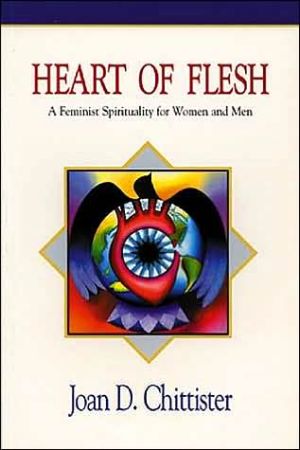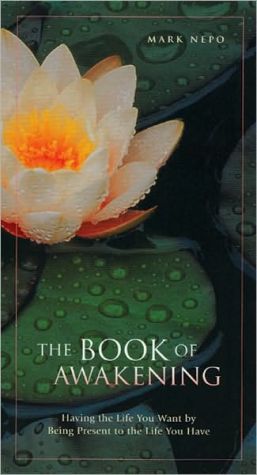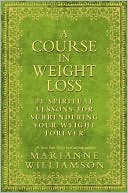Heart of Flesh: A Feminist Spirituality for Women and Men
What does it mean to live out a feminist spirituality in a world that glamorizes violence and legitimizes domination? Best-selling author Joan Chittister takes a very real look at what it means to have a feminist spirituality —a "heart of flesh" —in today's culture. She unmasks the effects of sexism on both men and women and describes a spirituality that makes healthier, happier human beings of us all.According to Chittister, the patriarchal culture that has shaped our world has also brought...
Search in google:
What does it mean to live out a feminist spirituality in a world that glamorizes violence and legitimizes domination?Best-selling author Joan Chittister takes a very real look at what it means to have a feminist spirituality—a "heart of flesh"—in today s culture. She unmasks the effects of sexism on both men and women and describes a spirituality that makes healthier, happier human beings of us all. According to Chittister, the patriarchal culture that has shaped our world has also brought us to the edge of destruction with its dualisms, hierarchies, and inequality. She outlines the historical realities that produced this situation and describes how patriarchal culture and spirituality maintain their hold on us. She then argues that there is another way which is better and introduces us to a feminist worldview that, in recognizing the full humanity of women, leads all of us to new, better ways of being and relating. Heart of Flesh: A Feminist Spirituality for Women and Men offers a dynamic vision of spirituality from one of our finest writers of spiritual literature. Library Journal A noted author, lecturer, and Benedictine nun, Chittister considers feminist spirituality to be the true essence and full potential of Christianity. Analyzing the history of patriarchal thinking, she shows how its tendency toward violence, authoritarian domination, and dualistic theology diminishes both women and men. The feminist spirituality she envisions is modeled after the radical example of Jesus, whose human vulnerability and compassion gave him strength to love the sick, the poor, and society's outcasts equally and to resist evil and injustice without violence. Chittister writes with a rare blend of accessible scholarship and impassioned eloquence. Highly recommended for women's studies and general collections.
from Chapter 1: FEMINISM: A Cornerstone of Spirituality (pages 1-2; 6-7)\ \ There is a new question in the spiritual life: It is the spirituality of the spiritual life itself. Life here and the way we relate to it, rather than life to come and how we guarantee it for ourselves, has become the spiritual conundrum of the age. Something, we know, is missing in the match between what we have been led to believe about the spiritual life and what we come to discover that life itself is about.\ This book departs from the conventions of spirituality-as-usual. A world on the brink of marital breakdown, urban violence, international conflict, and global deterioration demonstrates without doubt that spirituality-as-usual has not worked. And no wonder. When traditional spirituality requires the invisibility of half the human race, the spiritual resources of the world go bankrupt. When spirituality means private piety, the public arena is left to develop devoid of the kind of values that give heart to the world at large. When spirituality does more to underwrite a system than to challenge it, the system eventually falls under the weight of its own decay. The social signs are clear: Something is missing from spirituality as we have known it because something is missing from life as we have designed it. Women have been left out of its conceptual development; men have been distorted and diminished by its assumptions; the world has been threatened by the hierarchal implications of its conclusions.\ Spirituality is not meant to be a panacea for human pain. Nor is it a substitute for critical conscience. Spirituality energizes the soul to provide what the world lacks. This book is about the kind of spirituality needed in a period when factionalism, supported by the values of the past, has reached a point of tension beyond the power of traditional spiritual priorities to cure. This book on feminist spirituality for women and for men looks at life through a different lens.\ Spirituality plunges us into life with an eye to meaning and purpose. When it is authentic, it is never an invitation to withdraw from life. Real spirituality, like Jacob wrestling with the angel, takes life in both hands and grapples with it. The greatest contemplatives—Bernard of Clairvaux, Teresa of Avila, Catherine of Siena, Thomas Merton—were often our most active people. The greatest activists—Dorothy Day, Martin Luther King, Jr., Mahatma Gandhi—were intensely contemplative, deeply visionary, intrinsically spiritual people. Like the Jesus who walked through dust from Galilee to Jerusalem listening to the poor, talking to women, and contending with the system, they lived deeply involved in the world and consciously immersed in an abiding sense of God. A well-developed spirituality enables us to do the same.\ Deserting the human struggle in the name of the spiritual life belies the real nature of spirituality. The truly spiritual person faces every difficult question, every troublesome issue, every unresolved challenge squarely. Spirituality is not about specious consolations gained at the expense of full participation in the human race. It is about developing the courage, the determination, to commit ourselves to living all the dimensions of life with awareness and strength, with depth and quality.\ There are issues in our time, as in the lives of great spiritual leaders before us, that need to be faced head on and subjected to the anvil of spirituality. The period is an avalanche of new ideas, disturbing changes, violent upheavals, and unresolved questions for which old answers do not satisfy. These very things are new grist for the spiritual mill. The temptation is to avoid the hard questions: to retreat to the past or to sit passively by, waiting for a clearer, calmer future. But that is not spirituality. That is comatose piety, at best. That is private devotion, not spiritual development, not the Christian life.\ One of the major issues of our time is feminism. It challenges male-female relationships. It challenges roles. More than that, it challenges both church and state as we have known them. This rise in the consciousness of women, this description of phenomena from the feminist viewpoint of women, is changing social expectations, changing attitudes, changing families, and changing systems. It is changing spirituality, too. It is changing what we call holy, what we call good, what we call necessary.\ * * * * *\ Despite Mary of Nazareth, the Samaritan woman, the foundresses of the early churches, and centuries of holy women after them, the spiritual life has been the proper purview only of men, as have governments and economics, education and law. Women have been cast simply as consumers of the spiritual life. What women knew of the divine, the holy, the moral, the human, the social, the true has lain hidden in the reveries of mystics, the moralisms of mothers, the pious notions of nuns—never certified, never cast in theological splendor or ecclesiastical creeds. Unfortunately, that kind of deprived spirituality went long ago dry. That kind of unbalanced spirituality, strong as it is, good as it is, necessary as it is to clear thinking and intellectual commitment has seldom seemed to move the heart. Despite all the creeds in the world, we ignore the social dimensions of sin: Massacre is a public act; slavery is a public act; the repression of half the human race is a public act. It is clearly time to acknowledge the other strain of the spiritual life and hand it whole to a world whose current spirituality lies in tatters in the midst of a world fashioned on its values.\ The temptation, of course, is to ignore or to resist ideas that confute the standard assumptions on which we have built our lives, however questionable their foundations, however suspect their results. The thought of feminist spirituality may, then, be difficult for some, because it implies either something they discount or something they resent. But to ignore the subject because feminism is something you fear or because feminism is exactly what makes you suspicious of anything that even smacks of the religious, runs the risk of reducing spirituality to a plastic and artificial thing, to something the spiritual part of a person can do without. Whatever impeaches life's claims, as spirituality does, requires spiritual evaluation itself.\ A book like this may not give sure and certain answers to the tensions and confusions surrounding the development of a spiritual life today, but it may raise enough difficult questions to make the spiritual life different tomorrow from what it was yesterday. Anything is holier than being in an aimless rut that derives from nothing with which we can any longer identify and is going nowhere we want to go.\ The important thing to note is that this book is not about femaleness. This book is about a feminist worldview, about another way of looking at life, about another set of values designed to nurture a dying globe and rescue a forgotten people. These concepts are open to men and women alike. This book, therefore, is about a way of thinking for both women and men who are tired of the carnage, sickened by the exploitation of the globe, searching, as Ezekiel promises—if we will simply go deep enough, think freshly enough, risk bravely enough—for "a heart of flesh" and a soul of steel.
Feminism: A Cornerstone of SpiritualityCulture: The Foundation of Spirituality Patriarchy: The Old Worldview Feminism: The New Worldview Christianity and Feminism: A Mirror Image Reason and Feeling: A New Way of Thinking Power and Empowerment: A New Strength Aggression and Nonviolence: A New Road to Peace Pride and Humility: A New Self-Acceptance Universalism and Otherness: A New Focus on the Subject Authoritarianism and Dialogue: A New Level of Consensus Competition and Compassion: A New Game of Winner Gives All Vulnerability and Strength: A New Paradox The Patriarchal Woman: Internalized Oppression The Cosmic Vision of Creation: A Circle, Not a Pyramid Feminism: A Revolution of the Heart Notes Bibliography
\ Library JournalA noted author, lecturer, and Benedictine nun, Chittister considers feminist spirituality to be the true essence and full potential of Christianity. Analyzing the history of patriarchal thinking, she shows how its tendency toward violence, authoritarian domination, and dualistic theology diminishes both women and men. The feminist spirituality she envisions is modeled after the radical example of Jesus, whose human vulnerability and compassion gave him strength to love the sick, the poor, and society's outcasts equally and to resist evil and injustice without violence. Chittister writes with a rare blend of accessible scholarship and impassioned eloquence. Highly recommended for women's studies and general collections.\ \








